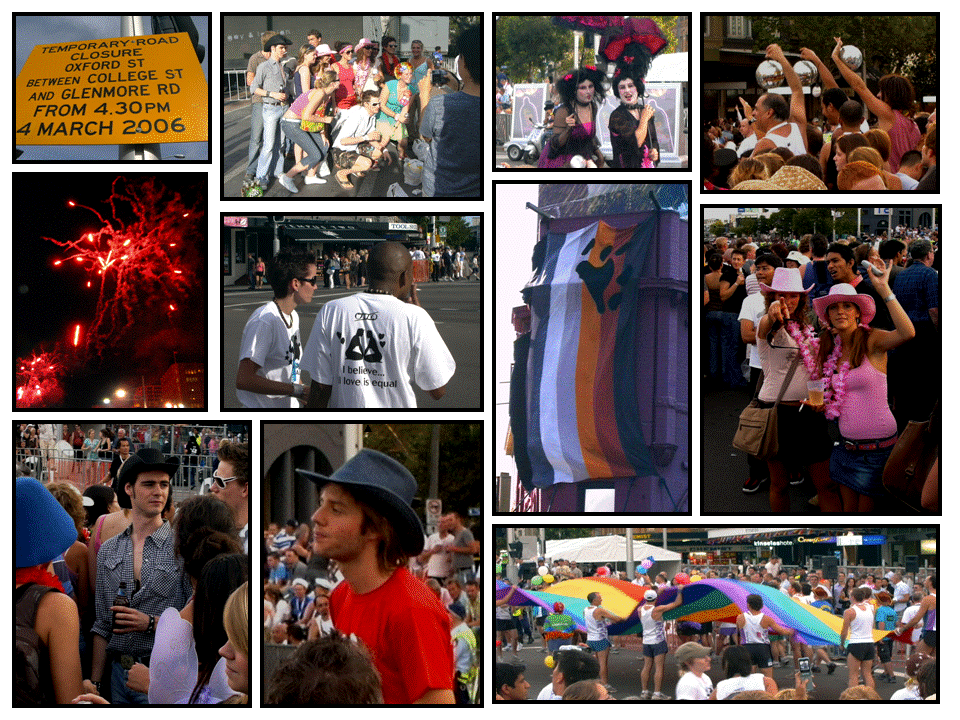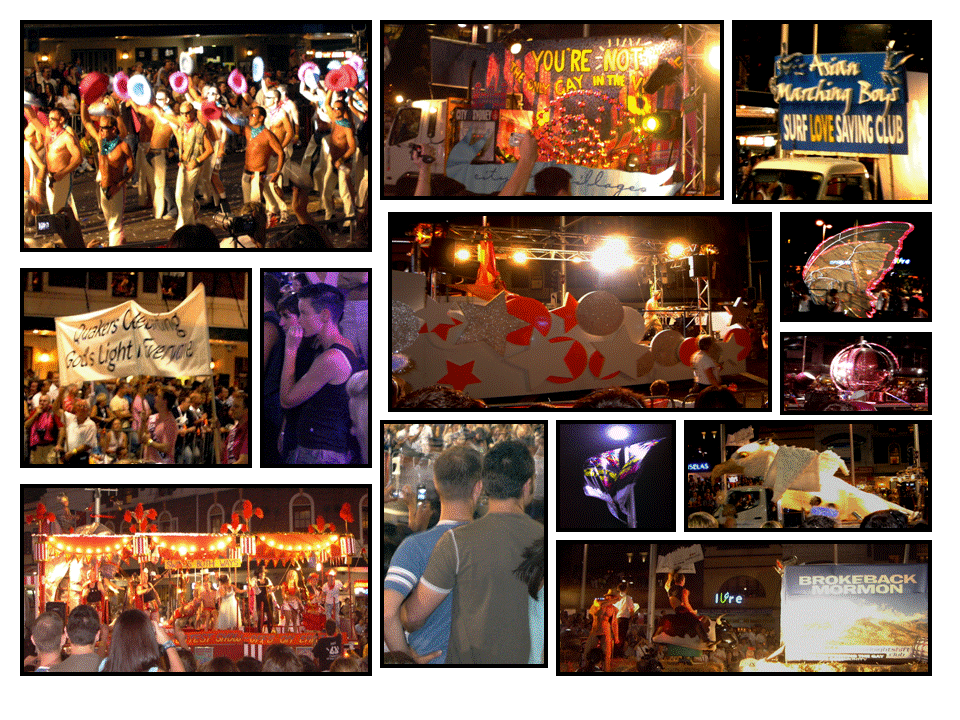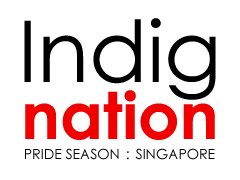Original article: http://www.plu.sg/indignation/?p=121
When do queer women realize that they are queer? How do they come out to the people around them? What do they think of long-term lesbian relationships? How are they prepared to deal with issues that come with aging?
Here are some of the questions addressed by four queer women from different generations, during the L3: Loving, Leaving and Living forum held on 5th Aug. The live forum was organized by Sayoni.com, the community for Asian queer women, as an Indignation 2006 event. The forum attracted an impressive turn-out of 105 audiences, mostly women, but including straight and gay men as well.
The speakers were chosen from different age groups: Elsa represented the early teens; Anj represented the early twenties; Jean represented the early thirties and Meiling represented the forties. The contrast in perspectives was shown through a series of questions, a spectrum of concerns pertaining to the lesbian community, discharged by a feisty emcee, Kelly.
The general atmosphere of the forum was light-hearted, with laughter bursting within the audience from time to time, because of the witty comments from the panelists. However, the discussion was nowhere near frivolous. The panelists shared their life stories and perspectives with such spontaneity and sincerity, which was indeed commendable.
The coming out experience of the panelists was all different in one way or another, painting a stark contrast of the social context they lived in. The younger panelists, Elsa and Anj are out to their families, and coming out was not a continuous internal struggle for them, as compared to their senior counterparts. Jean mentioned how she got her queer education in clubs because there was hardly any source of information in the past, before the internet was common and accessible. She even attempted to ask the audience who had heard of those clubs, and obtained no response, much to the amusement of all. Meiling spoke with incredible forthrightness, when she told the audience her struggles over the years and what it took for her to come out to herself.
Despite that society has come a long way and has made much progress over the years, coming out is still not a bed of roses for the younger generation. Elsa narrated her stories of coming out to friends who are fundamentalist Christians, and the pain she endured when she was asked to change her orientation, by the very people she cares for. The way she narrated her story was hilarious, and the audience erupted in laughter at certain points of time. However I felt a lump in my throat as I watched the bubbly teenager share her traumatizing experiences. It was heart-wrenching to see how much a typical gay/ lesbian youth has to go through in Singapore.
The panelists also discussed the various issues in the community, such as the use of labels in identity, the butch-femme binary, homophobia, relationships, growing old together etc. Certain highlights consist of the following: An unanimous definition of cheating- nothing beyond the mental space. Varying degrees of being out, proud and loud- Notably, Elsa and Jean believed in being out in every aspect of their lives and Anj shared about the initial maelstrom in the family before acceptance. Meiling emphasized that aging gracefully means that one should start financial planning as soon as possible.
It was refreshing to hear the different viewpoints of the women, and how dialogues, exchanges and consensus reign despite the differences. The differences also served to illuminate how much progress we have seen over the years.
During the question and answer session, the audience was a little apprehensive at first but warmed up in no time. They shared their viewpoints on �internalized homophobia�, which took on a more macro edge: fear of minority groups within the queer community. In a particular question, �What are we fighting for, when people who accept you will nonetheless see you as not normal?� the speakers were quick to point out that if past activists were non-existent, the forum would not have been possible.
The responses from the audience were so effervescent; the emcee even had to request that they might continue the discussions after the forum has ended.
In their closing speech, the panelists gave their heartfelt wishes for the community. From helping gay and lesbian youths to urging people to stay connected with their extended families, I could sense their dedication and passion for the community.
Last but not least, the organization of the entire forum was laudable as well. I certainly appreciated that the organizers managed to set up a public address sound system, so that the panelists� speech could be clearly heard from the back of the room. This was extremely helpful, given the highly echoing characteristic of the big and high-ceiling room. Intricate details such as brochures, posters and refreshments all highlighted the resourcefulness of the organizing team.
All in all, the session ended on a positive note, inducing hope in dykes who were present. It represents a tiny but significant step towards greater exposure for and understanding from the general public. Voices were heard, issues were discussed, friendships were reinforced, and queer women of all ages came together to show that we stand as one. That is Indignation for you.
Cheers for more.
Coming up soon: Audio recordings of the forum.
 �
� �
�

 Take a roller-coaster ride from teenage years to adulthood, as queer women from four different generations talk about their perspectives and experiences in coming out, singlehood, relationships, health and ageing.
Take a roller-coaster ride from teenage years to adulthood, as queer women from four different generations talk about their perspectives and experiences in coming out, singlehood, relationships, health and ageing.